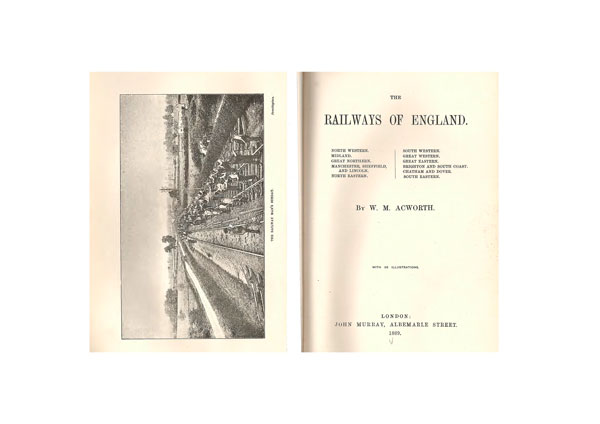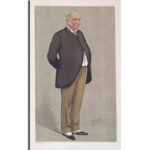Description
This is an unusual book in that although authored by a professional economist, it is both readable and informative about the railways of England in1889. The railways of Scotland were to feature in an other book later.
Sir William Mitchell Acworth (1850 – 1925) Knighted 1922. Educated Uppingham and Christ Church Oxford, Master’s Degree, Modern History 1875. on leaving university, he became Tuto tor Prince Wilhelm (later the Kaiser) and Prince Henry of Prussia.
Master at Dulwich College 1877 – 1885. Became interested in politics, as a member of the Conservative and Unionist party, being elected to the Metropolitan Asylums Board in 1886, then to the new London County council in1889. He had a lifelong interest in railways, publishing this work in the same year and The Railways of Scotland in 1890, the year he was called to the Bar.
A visit to the USA to study the statistical methods employed by American railroads,resulted in his third book Railways and the Traders in 1891which established his reputation as a transport economist. He had three failed attempts to enter parliament in the Conservative interest, but he was regarded a what was termed “a safe pair of hands” in mid 20th century public life, and was appointed to various Royal Commissions and Inquiries, culminating in appointment as chairman , of the Committee on Indian Railways in1921, which earned him a knighthood in the Order of the Star of India.He prepared a report on the railways of Austria for the League of Nations in 1923, then in 1924, was appointed by the Inter- Allied Reparations Commission to reorganise the German railways.
Sadly the workload proved too much for a man in his mid 70s and he died sudden9ly in 1925.
One cannot help wondering, if he had not been fully occupied with Indian and European matters, as an impartial and highly knowledgeable expert (unlike some of those engaged in the business, with their personal bias for one company or another, Geddes and Granet, for example) Acworth could not have come up with a rather better scheme for the “Grouping than that adopted.




Reviews
There are no reviews yet.